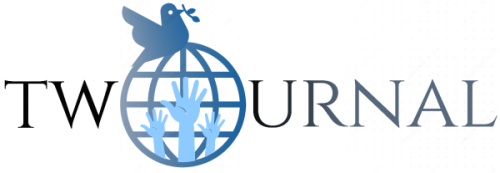[ad_1]
Impoverished Yemen would run the risk of a devastating famine if the outgoing Trump administration goes ahead with a decision to designate the country’s largest rebel group as a terrorist organization, the country’s aid chief has warned. UN.
Mark Lowcock, UN Under-Secretary-General for Humanitarian Affairs, said food imports into the impoverished Arab country fell by a quarter in November after US media quoted officials as saying President Donald Trump planned to label the Iran-aligned Houthi movement as an alien. terrorist organization before the end of its mandate. Food import figures had not improved in December, Lowcock added. Aid groups say Yemen, where a multidimensional war has raged for nearly six years, faces the world’s worst famine in decades.
“There is a frightening effect of [terrorist] designation . . . which risks undermining food imports and becomes the straw that tilts the country not only into a small famine, but into a big one, ”Lowcock told the Financial Times in an interview. “The question is whether this will turn out to be a great famine or a really huge famine on a scale the world has not seen since a million people lost their lives in Ethiopia in the 1980s.
Yemeni traders fear they will be “caught up in the implications” of any move to designate the Houthis as a terrorist organization, he said. Traders have been working with “business partners and these people will be even more nervous,” he added.
The Houthi movement controls the populated north of Yemen, including Sanaa, the capital, and Hodeidah, a port city through which about two-thirds of the country’s import-dependent goods are shipped. If the movement were labeled a terrorist group, any individual or organization dealing with the Houthis would risk US sanctions.
The Trump administration and its allies in Saudi Arabia and the United Arab Emirates view the Houthis as an Iranian proxy © Mohammed HuwaisAFP / Getty Images
Washington has not publicly commented on any plans to designate the Houthis as a terrorist organization, but U.S. media last month quoted administration officials that Mr. Trump was considering the move before stepping down on January 20.
The Trump administration and its allies in Saudi Arabia and the United Arab Emirates view the Houthis as an Iranian proxy. They accuse Tehran of providing weapons to the group, including missiles and drones used to attack Saudi Arabia.
The Houthis, an Islamist movement, have controlled Sana’a since taking control of the capital and ousting the government in 2015. Saudi Arabia then intervened militarily against the Houthis as Yemen fell into war, which sparked what the UN describes as the worst man in the world – caused humanitarian crisis.
The UN has provided food aid to an estimated 13 million starving Yemenis – about half the population – but a drop in donor funding, especially from Saudi Arabia, the United Arab Emirates and Kuwait, means that it is now only able to feed 9 million, Mr. Lowcock said. The 4 million people who were no longer receiving aid were “essentially dying of hunger”.
A Western diplomat said US officials he spoke to agreed that naming the Houthis as a terrorist organization would make the dire situation worse.
There is also the perception that the Trump administration has considered the decision to make it difficult for President-elect Joe Biden to deal with crises in the Middle East, the diplomat said.
Mr Lowcock said that while US officials have said the Trump administration will exempt aid organizations from all sanctions, the vast majority of food consumed in Yemen is imported by commercial traders.
United Nations agencies provide food aid directly to some Yemenis and give others cash transfers and vouchers that allow them to purchase goods in the market. The problem is that if food imports fell sharply, more people would become dependent on direct aid at a time when agencies had less funding.
“The situation was on a deteriorating trend before due to the continued violence and because we did not receive the pledges we need for humanitarian aid,” Lowcock said. “What importers are telling us is that they are concerned about their ability to continue importing grain if this Houthi designation is passed, and that is my main concern.”
[ad_2]



